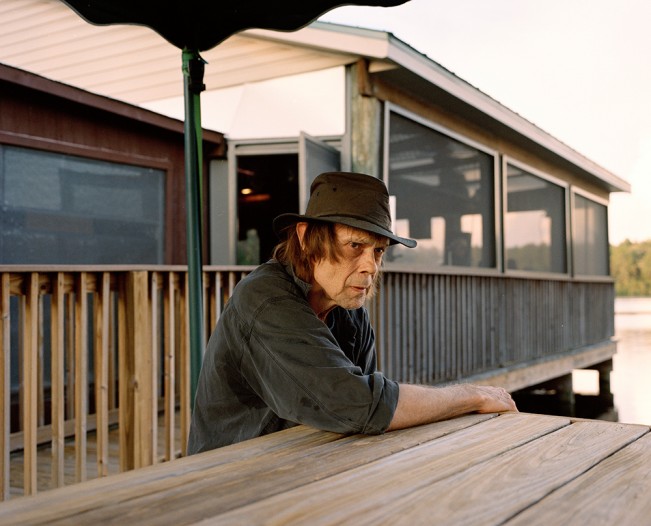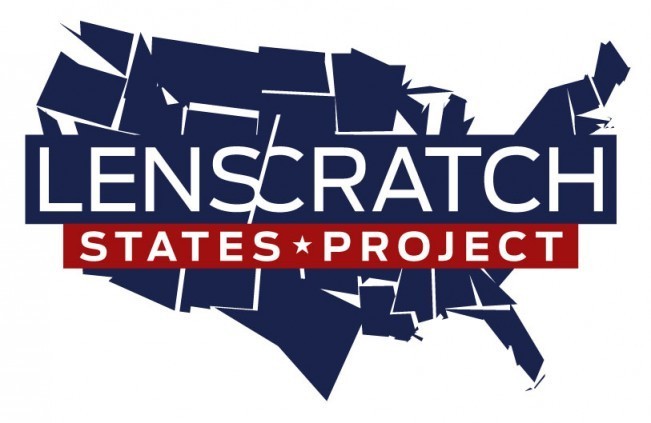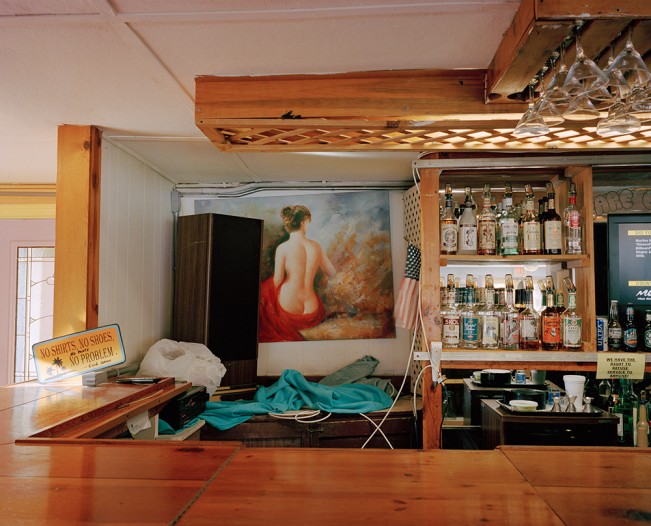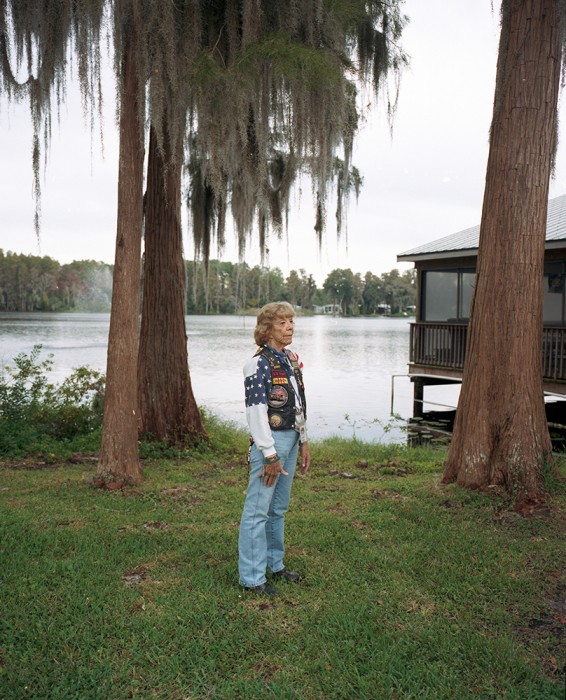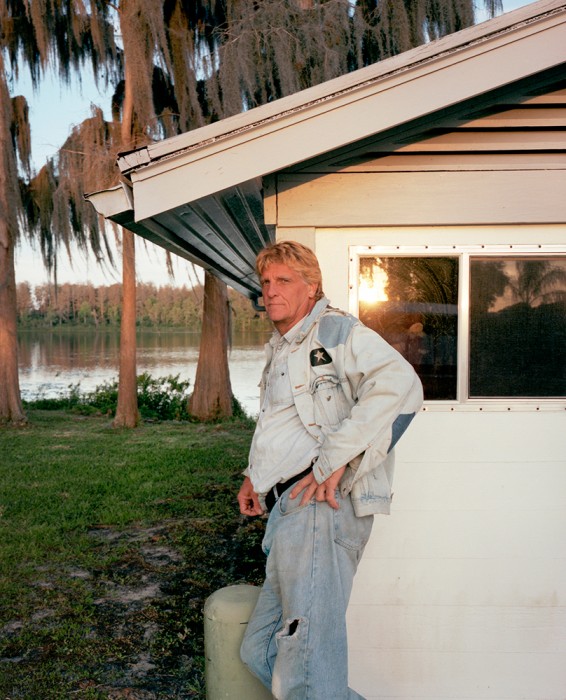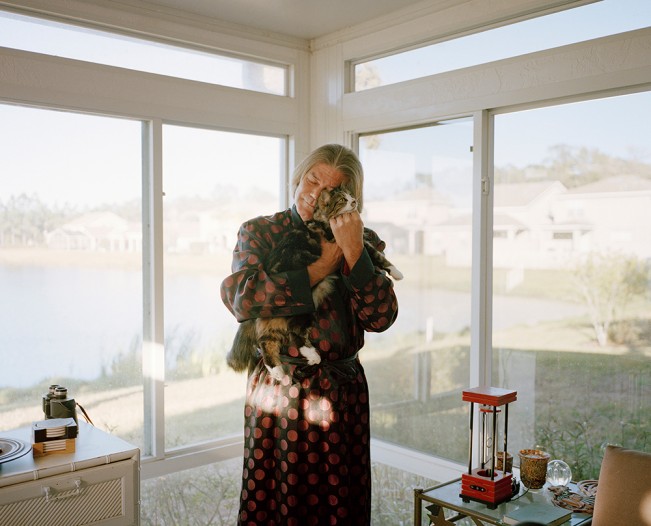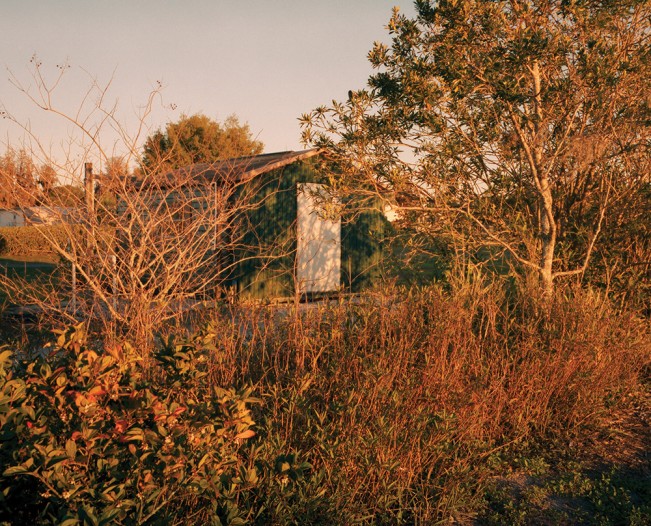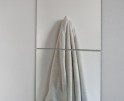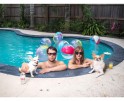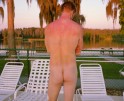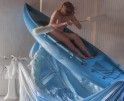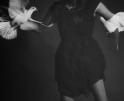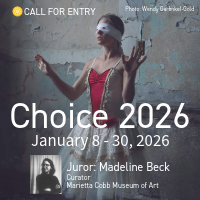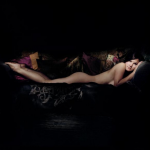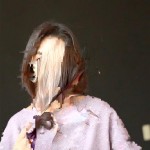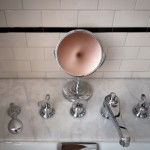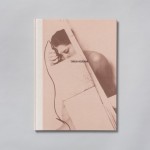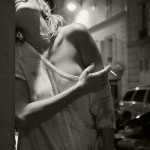Katty Hoover: The States Project: Florida
Florida has always attracted unique subcultures of people looking to start fresh. It’s a bit of a frontier in that way. Often thought of as a vacationland – a temperate, tropical place to end up and live the good life – the state’s culture has largely been shaped by these ideas. In her portrait series Lake Como, Katty Hoover documents a nudist community in central Florida. Katty’s photographs speak to these popular, idealized notions of Florida as a paradise, while simultaneously questioning their validity.
Katty was born in Corbin, Kentucky. She received her BA in College Scholars at University of Tennessee and her MFA at San Francisco Art Institute. She has also studied at University of Notre Dame and Semester at Sea through the University of Virginia. Her work is aimed at people: narratives of isolation, loneliness, and social tension, and the body as a site of psychological negotiation. Her work has been shown at Tampa Museum of Art, Marin Museum of Contemporary Art, James Madison University, and Michael Rosenthal Contemporary Art in San Francisco. Hoover currently lives and works in Northern Nevada.
Lake Como
Lake Como is a collection of images named for the nudist community in central Florida, the site at which this work is being made. In rural Florida, like most of the south, the nude body remains taboo. And yet Pasco County, where Lake Como is situated, is home to the largest concentration of nudist sites in the U.S.
Fenced from public view, Como embodies the conflicting human desires for privacy and exhibitionism. The resort is an active but hidden subculture. Daily life remains prosaic, but often provocative.
These portraits consider subjects in their natural and built environments, which often reference the glamorous, Italian destination of the same name. Lawns are immaculately manicured, and docks hug the waters edge. Roman and Greek statues are frequent as plastic flamingos. The wilderness is embraced and tamed.
My inspiration is rooted in childhood memories of the area, where lush greenery veils any undeveloped land. Warm lakes are plentiful, the light is prismatic, and the heat is dense and salty. Scaled creatures linger just beyond sight.
How did you start taking photographs? Do you have any notable influences? What currently informs your work?
I was turned on to photography by Baldwin Lee, who studied at Yale under Walker Evans. Reagan Louie was a classmate of Lee’s and a graduate advisor of mine. Both are interested in the same type of neo-documentarian work, whereby the nature of the subject is determined as much by the photographer’s experience as any other characteristics of who or what is being photographed.
As someone who lives elsewhere, but returns to Florida to make art, what makes Florida such an intriguing place?
The landscape is infinitely mesmerizing. Mangroves, shade trees, wetlands – these have always suggested to me a kind of lurking presence. I find the heat and dampness particularly energizing. But Florida itself is incredibly diverse, in both people and place. The Everglades provide an entirely different reality than Miami’s South Beach, Central Florida’s Lake region, or the “Deep South “ culture of the Panhandle.
I grew up in a different part of the state, but my hometown also had a nudist community close by. I hadn’t thought about this in years until I looked at your work. There are certainly other examples of unique communities in the state started around a subculture, such as Cassadaga and Gibsonton. I think for a lot of people, Florida has a mystique and is often perceived as a place to escape to or end up. Beyond the climate, what do you think it is about the culture of this place that people find so alluring?
I think it’s the geographical isolation, too. There’s the safety of remaining on the mainland despite the illusion you’re just beyond it. Since a lot of Florida was uninhabitable before 1970, rugged individualism tends to get rewarded. You could say this has translated into a spirit, in a way that ostracized people have formed a community based on similar rejections of common norms.
How did the Lake Como project start?
I posted a Craigslist ad for a different project, and two Como residents responded. I was looking for nude models, and it hadn’t occurred to me to pool nudists. It took me several visits to realize that Como represented a project in and of itself. Because I grew up in Florida, there’s something incredibly familiar about it.
Can you talk a little about your process and how you found your subjects? How did you decide where to photograph them? Did they receive much direction from you?
The results are achieved through a range of possibilities. Sometimes I orchestrate a scene completely, other times it’s collaborative. How the pictures come about is less interesting than the images, although I often think of shooting portraits as a kind of performance. I have to establish rapport in situations where I might feel uncomfortable or unsure.
I try and take my time there, spending several days or nights in a row. It’s not a place that’s not easy to move in and out of — especially with a camera. Como is lucky to maintain so much land, and I let the subjects lead me throughout the property. Since it’s both a residency and a resort, I get to deepen my relationships with some – while new subjects are always presenting themselves.
I think people will naturally question a photographer’s motivation when asked to pose by a stranger. I imagine your subjects might also tend to assume your intent is to sexualize them, which I don’t think you do at all, but is this something you had to push back against when working on this project?
Well, that question presupposes that all subjects denounce such sexualization. My gender might complicate that in untraditional ways, but it’s hard for many subjects to really understand a photographer’s interest. It’s always a form of attraction, whether sexual or not. I sense that some enjoy that kind of attention. Most are trusting, regardless.
If someone rejects the proposition to pose, I don’t usually know or need to know why. There are nudists who don’t want their lifestyle known to friends and family outside the community.
A few of your subjects have their backs turned to the camera or have a guarded pose that implies a reluctance to be photographed, which I find to be an interesting duality. What were your experiences working with people in this regard? Was there a general openness to being photographed?
This duality is an appropriate reflection of a common complexity in nudism. There is an expectation of respect and usually a clear sense of boundaries, but there’s an exhibitionist component, obviously. Sometimes a subject is shy – or has a hesitant moment – just like anyone would.
Not everyone grants permissions to be photographed, and I respect that. The stakes are high enough without being nude since I’m asking to use someone’s image in a way that’s determined entirely by my own limited and specific point of view.
You say in your project statement “Daily life remains prosaic, but often provocative”. Would you mind elaborating on what you mean by this?
Sometimes life at Como, or any nudist residence, is mundane. But like at any other place, there is transcendence in that. That statement also alludes to the part of the viewer or outsider – like me – for whom strangers, and nudity, remain provocative.
What’s next for you? Do you have any upcoming shows or projects that you would like to plug?
I am honored to be featured with four other talented female photographers in the upcoming Fall edition of Photographer’s Quarterly. I just moved to Reno, which is now a cultural fermentation of progressive Californian influences, cowboy libertarianism, and the glamor and grit that follow casino boom. There’s a project there, for sure.
Posts on Lenscratch may not be reproduced without the permission of the Lenscratch staff and the photographer.
Recommended
-
Chris Otten: The States Project: FloridaAugust 23rd, 2015
-
Roy Albert Berry: The States Project: FloridaAugust 22nd, 2015
-
Katty Hoover: The States Project: FloridaAugust 21st, 2015
-
Kristen Roles: The States Project: FloridaAugust 20th, 2015
-
Annie Donovan: The States Project: FloridaAugust 19th, 2015

